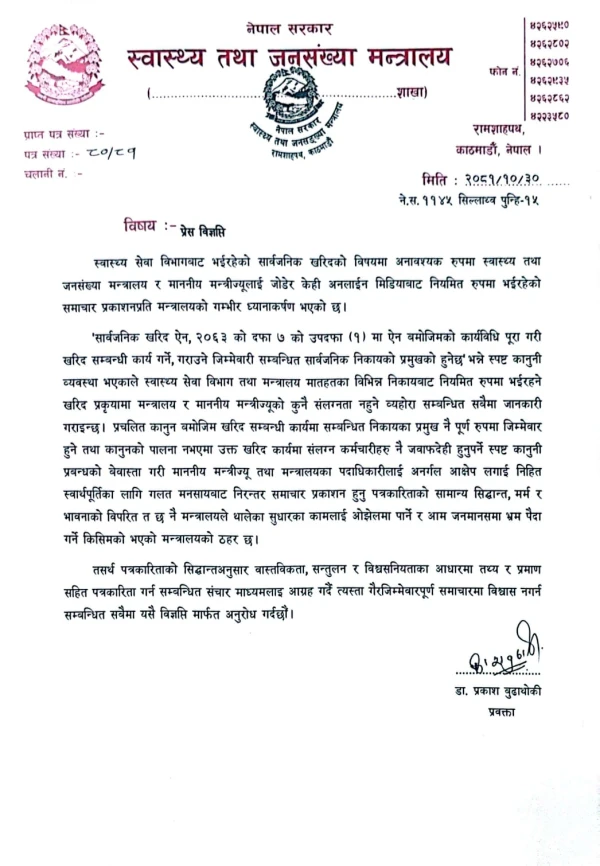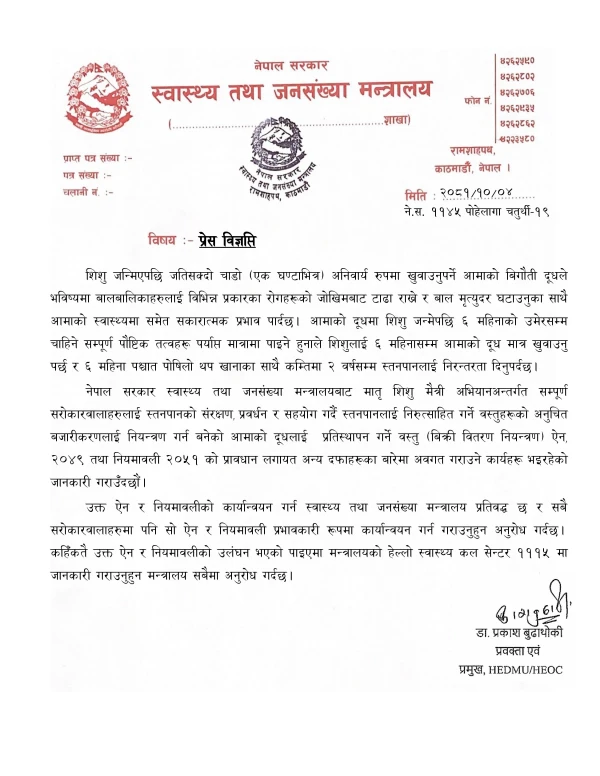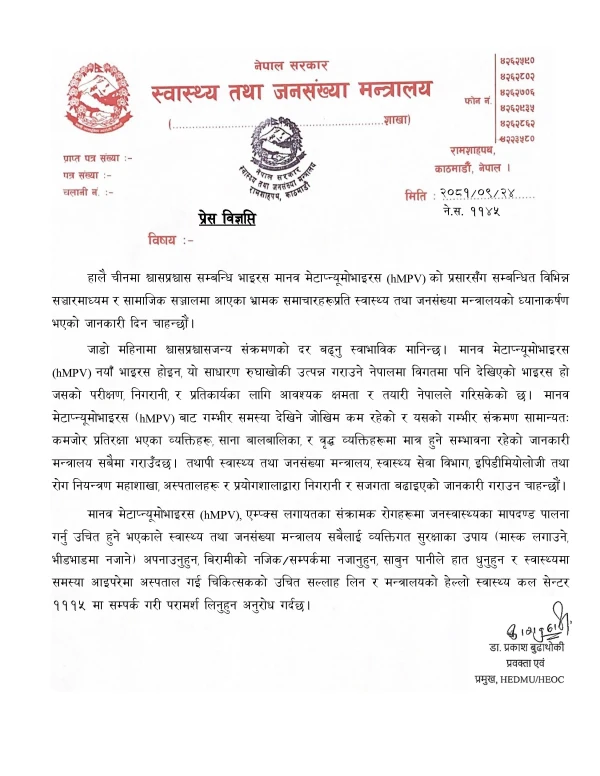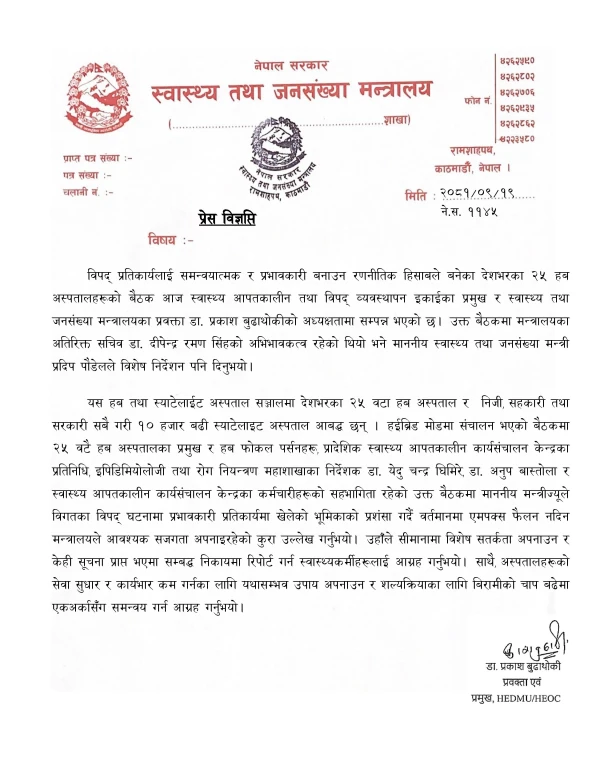news & updates
GoN-WHO Emergency Care System Strengthening Project in Nepal
Global Emergency and Trauma Care Initiative - GETI
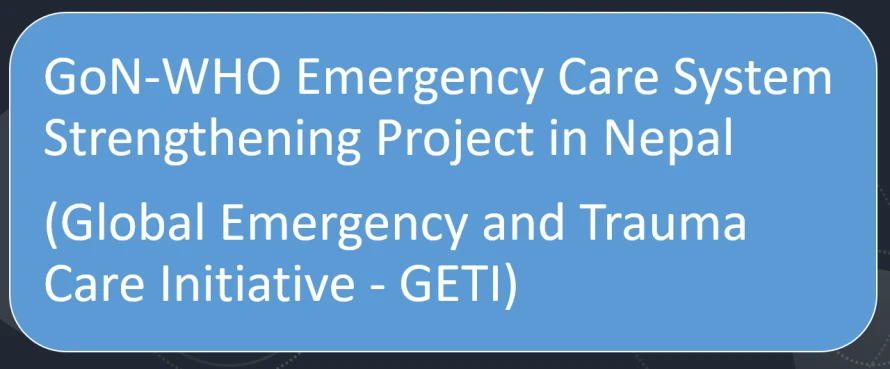
January 20, 2024
In 2019, Ministry of Health and Population, Government of Nepal initiated an Emergency Care System Assessment (ECSA) which is the first point of contact with the health system for many, particularly in areas where there are access barriers to care. This assessment tool included the five domains of the emergency care systems were assessed: System Organization, Governance and Finance; Emergency Care Data and Quality Improvement; Scene Care, Transport and Transfer; Facility-Based Care and Emergency Preparedness and Security and generated thirty nine Action points to strengthen the Nepal’s emergency care have been identified based on a consensus form wide range of stakeholder including service providers, facility managers, program managers, academicians or policy makers.
Similarly In 2019, the World Health Assembly endorsed a resolution recognizing the crucial role of robust emergency care systems in achieving universal health coverage (UHC). This resolution highlights the need for timely access to quality care for the acutely ill and injured, regardless of their social or economic background. Implementing this vision requires a multi-pronged approach:
- Firstly, strengthening pre-hospital care is vital. This includes establishing efficient ambulance services, empowering communities with basic first-aid training, and enhancing coordination between first responders and hospitals.
- Secondly, building a strong network of well-equipped emergency departments with qualified medical personnel is essential. This network should have tiered levels of care, ranging from basic stabilization to specialized trauma centers, depending on the severity of the case.
- Thirdly, promoting preventive measures and public education plays a crucial role in reducing the need for emergency care. This includes raising awareness about risk factors for diseases and injuries, encouraging healthy lifestyles, and ensuring access to affordable primary healthcare.
Recognizing the need for improved emergency care, Nepal launched a research project focusing on seven high-volume hospitals across seven provinces. This initiative involved gathering background data, introducing the Basic Emergency Care approach with accompanying capacity building efforts, and deploying a contextually adapted Emergency Care Toolkit (ECT) in each participating hospital (Koshi Hospital, Narayani Hospital, Bharatpur Hospital, Pokhara Academy of Health Sciences, Bheri Hospital, Seti Provincial Hospital, Surkhet Provincial Hospital). Similarly, as per the demand of the hospital for implementation of Basic Emergency Care (BEC) and Emergency Care Toolkit (ECT) this training was expanded to further two training of trainers with total ToT recipient as 86 and total trainees as 611 frontline health workers.
Emergency Care Toolkit: Click Here
Glimpse:
Conducted Stakeholder Consultation and identified 39 actions priority, 10-11 December 2019
ECSSP Technical Committee formed and selected high patients flow hospitals (Koshi, Narayani, Bharatpur, PoAHS, Bheri, Surkhet and Seti), 10 March 2021
Dissemination of national survey report: Emergency Care System Assessment (ECSA), 2 April 2021
Conduction of Training of Trainers (BEC and Toolkit) in Kathmandu, 15-25 August 2022
Emergency Care Tools Expert Committee standardized the ECT to Nepal context, 13 October 2022
National Workshop on Emergency Care Tools (ECT) – incorporated feedbacks, 22-23 December 2022
Hon. Minister for Health and Population Mohan Bahadur Basnet observing Basic Emergency Care Training at Karnali Academy of Health Sciences, Jumla, 31 August 2023
Handover of ECT tools to GETI sites, 16 February 2023
ECT tools being implemented at Bheri Hospital, Lumbini Province, 26 February 2023
Focus Group Discussion on Post-implementation of GETI at Pokhara Academy of Health Sciences, 29 September 2023
